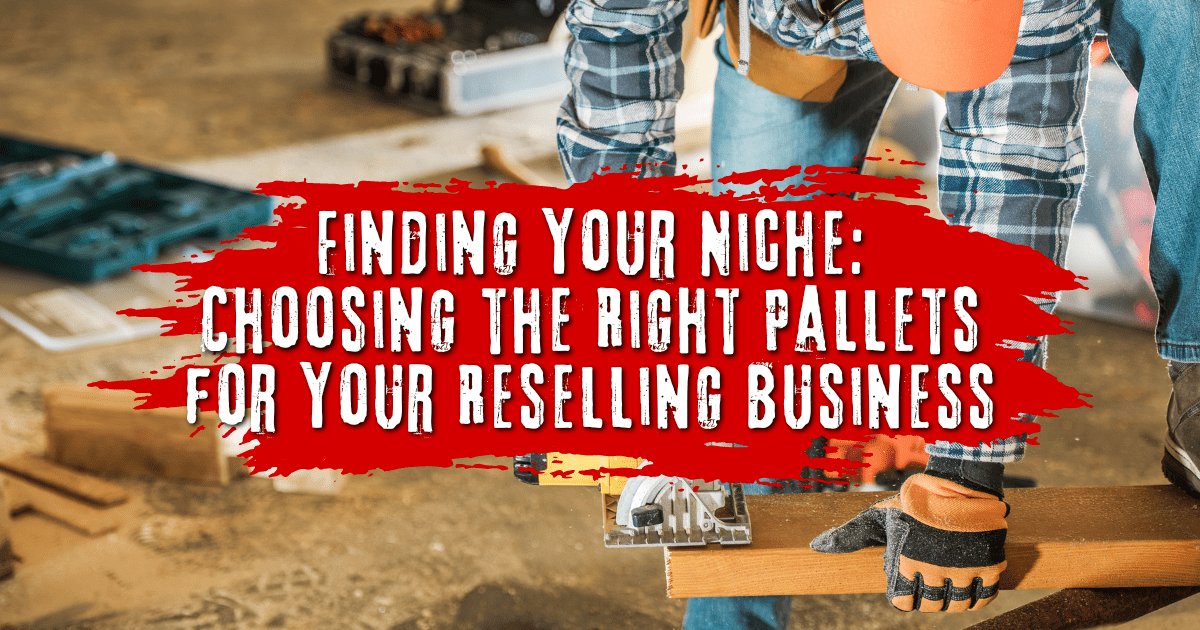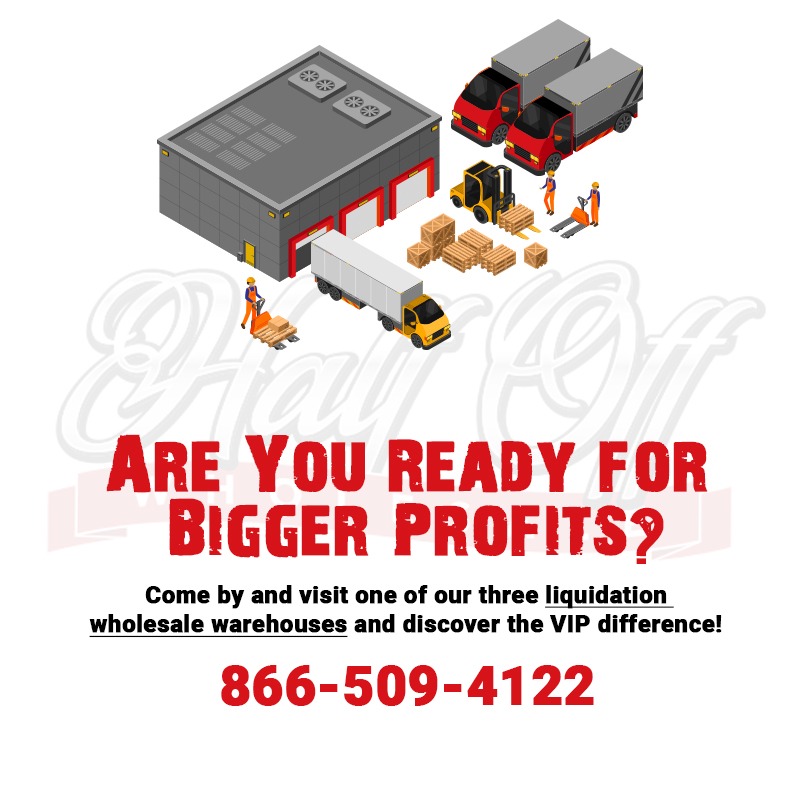Finding Your Niche:
Choosing the Right Pallets for Your Reselling Business
Starting a reselling business can be an exciting and profitable venture, especially when you tap into the potential of liquidation pallets. However, one of the most critical steps in building a successful reselling business is finding your niche. This guide will help you identify and select the best product categories and types of liquidation pallets that align with your target market. We will explore various niches, including home improvement items, selling at flea markets, swap meets, busy parking lots, direct to contractors, and online marketplaces.
Understanding Liquidation Pallets
Liquidation pallets are bulk lots of merchandise that retailers sell off at a discount. These can include overstock, returned items, or seasonal inventory that needs to be cleared out. As a reseller, you can purchase these pallets at a fraction of the retail price and sell the items individually for a profit.
Choosing the Right Niche
Home Improvement Items
Home improvement items are always in demand, making this a lucrative niche. You can open a liquidation store specializing in products like power tools, lawn care equipment, flooring, tile, appliances, bathtubs, and vanities. By selling these items at a markup, you attract DIY enthusiasts, homeowners looking to renovate, and small contractors.
Pros:
- High demand for home improvement products.
- Attracts both individual consumers and professionals.
- Opportunity for high-profit margins.
Cons:
- Requires significant space for storage and display.
- Initial investment can be higher.
- Requires knowledge of product quality and functionality.
Tips:
- Focus on quality brands known for reliability.
- Create attractive displays to showcase items.
- Offer bundle deals for contractors looking to buy in bulk.
Selling at Flea Markets, Swap Meets, and Busy Parking Lots
If you prefer a more flexible selling approach, consider setting up shop at local flea markets, swap meets, or busy parking lots. These venues attract a wide range of customers looking for good deals on a variety of items.
Pros:
- Low overhead costs.
- Flexibility in selling locations and hours.
- Direct interaction with customers for instant feedback.
Cons:
- Weather-dependent (for outdoor markets).
- Requires physical setup and teardown for each market.
- Sales can be unpredictable.
- May need permission/license to operate.
Tips:
- Diversify your inventory to appeal to different customer interests.
- Set up an eye-catching and organized display.
- Be prepared to negotiate prices and offer discounts for bulk purchases.
Selling Direct to Contractors
Contractors are always in need of reliable tools and materials at competitive prices. By focusing on selling liquidation pallets of tools and home improvement supplies directly to contractors, you can build a steady customer base.
Pros:
- Steady demand from professional customers.
- Potential for large, repeat orders.
- Builds long-term business relationships.
Cons:
- Requires understanding of contractors’ specific needs.
- Competitive market.
- May require delivery services for larger orders.
Tips:
- Build relationships with local contractors to understand their needs.
- Offer loyalty discounts for repeat customers.
- Ensure you have a consistent supply of high-demand items.
Selling in Online Marketplaces
While selling in online marketplaces like eBay, Amazon, or Etsy can be less profitable due to shipping costs and logistics, it offers the advantage of a vast customer base. This niche requires careful selection of items that are easy to ship and in high demand.
Pros:
- Access to a global customer base.
- No need for physical storefront.
- Flexibility to manage from anywhere.
Cons:
- High competition.
- Shipping costs and logistics can reduce profit margins.
- Requires strong online marketing skills.
Tips:
- Focus on lightweight and high-value items to minimize shipping costs.
- Use professional photos and detailed descriptions to attract buyers.
- Keep track of trends and adjust your inventory accordingly.
Local Classifieds and Social Media
Platforms like Facebook Marketplace, Craigslist, and local classified ads are excellent for selling items locally. This approach reduces shipping costs and allows for quick transactions.
Pros:
- No shipping costs.
- Quick and easy transactions.
- Direct communication with buyers.
Cons:
- Limited to local market.
- Requires time to manage listings and respond to inquiries.
- Safety concerns with meeting buyers in person.
Tips:
- Post regularly and use high-quality images.
- Be responsive to inquiries and offer convenient pickup options.
- Use local buy/sell/trade groups to reach a broader audience.
How to Choose the Best Liquidation Pallets
Research Market Demand
Before purchasing pallets, research the demand for specific products in your chosen niche. Use tools like Google Trends, eBay sold listings, and social media groups to gauge interest.
Start Small
Begin with a small investment to test the market. Purchase a few pallets and see how quickly you can sell the items and at what profit margin.
Evaluate Condition
Carefully evaluate the condition of items in the pallets. Some may be new, while others could be returns or have minor defects. Knowing this can help you set appropriate prices.
Build Relationships with Suppliers
Establish strong relationships with reliable liquidation suppliers. This can help you secure better deals and a steady supply of high-quality pallets.
Stay Organized
Keep detailed records of your inventory, sales, and expenses. This will help you track profitability and make informed decisions about future purchases.
Ready to start your reselling journey with liquidation pallets? Download our free Reseller’s Guide today! It’s packed with tips, strategies, and insider secrets to help you succeed in the reselling business. Get your copy now and take the first step towards building a profitable and rewarding business with Half Off Wholesale.
By following these steps and choosing the right niche, you can set your reselling business on the path to success. Happy reselling!








